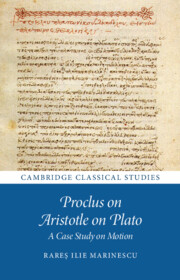Acknowledgements
This monograph is a revised version of my Cambridge PhD thesis. I was privileged to receive the help and encouragement of several people in writing it. Above all, I would like to express my deepest gratitude to my supervisor Myrto Hatzimichali for her unabating support, enthusiasm and kindness. She tirelessly read numerous drafts and immensely improved my arguments by constantly challenging my views. As second supervisor, James Warren provided sound advice and helped me to polish up my thesis on various important issues. My examiners, Gábor Betegh and Ursula Coope, offered stimulating criticism and improvements. If my dissertation makes more sense now, it is primarily due to their help.
With their usual philological precision and argumentative focus the members of the Cambridge B Caucus shaped my way of thinking about ancient philosophy. It has been an honour to be part of this collaborative community and I would like to thank especially Frisbee Sheffield and David Sedley for engaging with my work. A special mention is due to Jan Opsomer, who supported my project from its beginning and was an excellent host and supervisor in Leuven. The late Jens Halfwassen, Harold Tarrant, Carlos Steel, Gretchen Reydams-Schils, Pieter d’Hoine and George Boys-Stones have offered essential guidance along the way.
For their financial and academic support, I am greatly indebted to the Faculty of Classics, Cambridge and the German scholarship organisation Cusanuswerk. Corpus Christi College proved to be an ideal choice as a new home with its study spaces and catering, without which it would not have been possible to pursue this project. Through a generous scholarship the Fondation Hardt allowed me to spend a few weeks in Geneva. Additionally, I would like to thank learned audiences in Cambridge, London, Edinburgh, Bonn, Munich and Leuven for their helpful comments on various parts of this thesis. My postdoctoral fellowships in Leuven and Toronto allowed me to polish my writing and make necessary corrections.
On a personal level, I was fortunate enough to make many good friends on my journey. Elias Ohneberg, Kyosuke Katada, Andrew Romanowski, Zuri Biringer, Stephan Stephanides and Francesco De Vita made my stay in Cambridge much more pleasurable through various coffee breaks and dinners. Kasra Abdavi Azar and Jonas Narchi merit a particular mention, whose close friendship has been a perpetual source of support and inspiration. Thank you!
I dedicate this book to my parents, George and Cristina, who by their own example taught me that φιλομάθεια is only complete with φιλοπονία.

